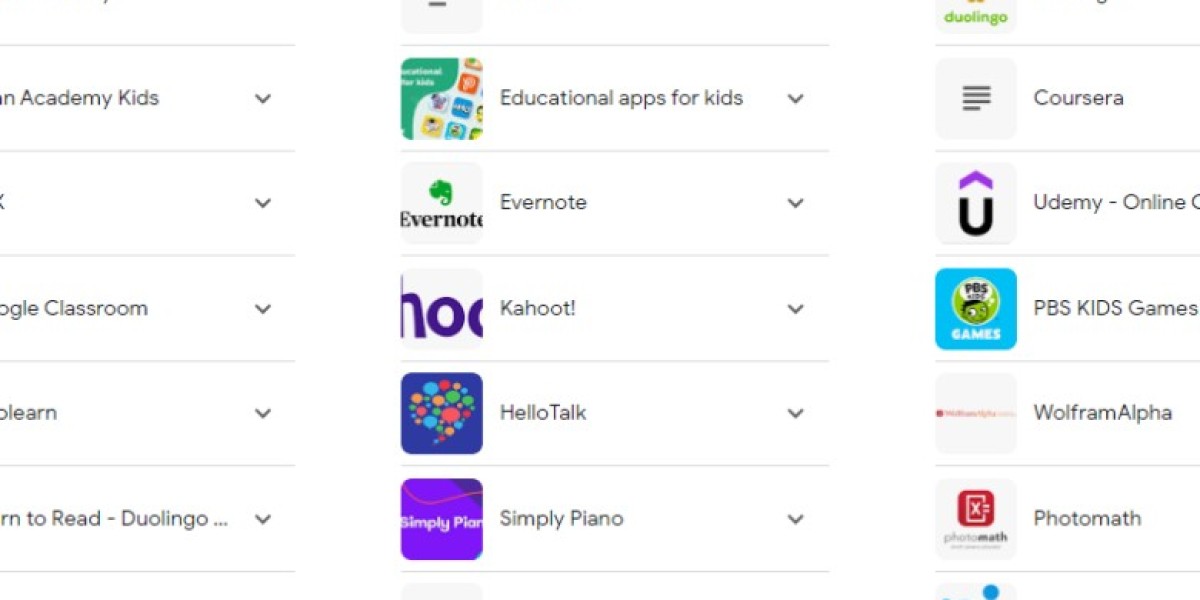In recent years, the integration of technology into education has revolutionized the way students learn and teachers teach. One of the most significant advancements in this regard is the proliferation of educational apps. These apps, designed to enhance learning experiences and cater to various educational needs, have garnered widespread attention and adoption in schools, colleges, and even among individual learners. In this article, we delve into the impact of educational apps on learning, exploring their benefits, challenges, and future prospects.
Benefits of Educational Apps
Interactive Learning: Educational apps offer interactive and engaging learning experiences through multimedia content, quizzes, games, and simulations. This interactivity can improve student engagement and retention of information.
Personalized Learning: Many educational apps use adaptive learning algorithms to tailor content and learning activities based on individual student needs and learning styles. This personalized approach can enhance learning outcomes by addressing each student's strengths and weaknesses.
Accessibility: educational apps provide access to learning resources anytime, anywhere, making education more accessible to students with diverse backgrounds and learning abilities. This accessibility fosters inclusivity and equal opportunities for learning.
Engagement and Motivation: The gamification elements often incorporated into educational apps, such as rewards, progress tracking, and challenges, can boost student motivation and encourage active participation in learning activities.
Collaboration and Communication: Some educational apps facilitate collaboration among students and between students and teachers through features like discussion forums, collaborative projects, and real-time feedback. These collaborative tools promote teamwork, communication skills, and peer learning.
Challenges and Considerations
Quality of Content: Ensuring the quality and accuracy of content in educational apps is crucial for effective learning. Developers and educators must collaborate to curate high-quality educational materials aligned with curriculum standards and learning objectives.
Digital Divide: The digital divide, characterized by disparities in access to technology and internet connectivity, remains a significant challenge in leveraging educational apps for all students. Efforts to bridge this divide through equitable access initiatives are essential.
Data Privacy and Security: Educational apps often collect user data for personalized learning and analytics. Ensuring data privacy, security measures, and compliance with regulations (e.g., GDPR, COPPA) is paramount to protect students' sensitive information.
Teacher Training and Support: Effective integration of educational apps into classrooms requires adequate teacher training, ongoing support, and professional development opportunities. Educators need to be familiar with app functionalities, pedagogical strategies, and best practices for integration.
Future Prospects and Trends
The future of educational apps holds exciting possibilities, driven by advancements in technology such as artificial intelligence (AI), virtual reality (VR), and augmented reality (AR). These technologies can further enhance personalized learning experiences, immersive simulations, and interactive content delivery.
Additionally, the integration of data analytics and machine learning algorithms in educational apps enables deeper insights into student progress, learning patterns, and performance metrics. This data-driven approach empowers educators to make informed decisions, provide targeted interventions, and continuously improve learning experiences.
Moreover, the shift towards hybrid and blended learning models, accelerated by the global pandemic, has increased the demand for versatile educational apps that support both in-classroom and remote learning environments. This trend highlights the importance of flexible, adaptable, and inclusive educational technologies.
In conclusion, educational apps have a transformative impact on learning by fostering interactivity, personalization, accessibility, and collaboration. Addressing challenges related to content quality, digital equity, data privacy, and teacher support is essential for maximizing the benefits of these apps. Embracing emerging technologies and innovative pedagogical approaches will shape the future of education, making learning more engaging, effective, and inclusive.



